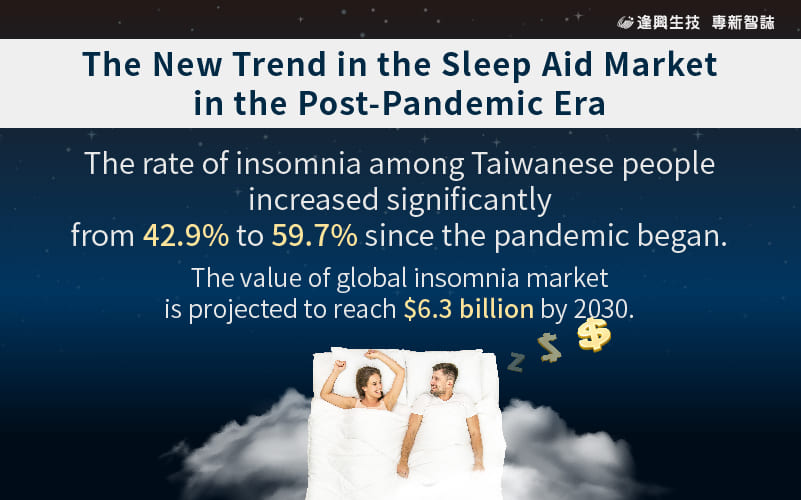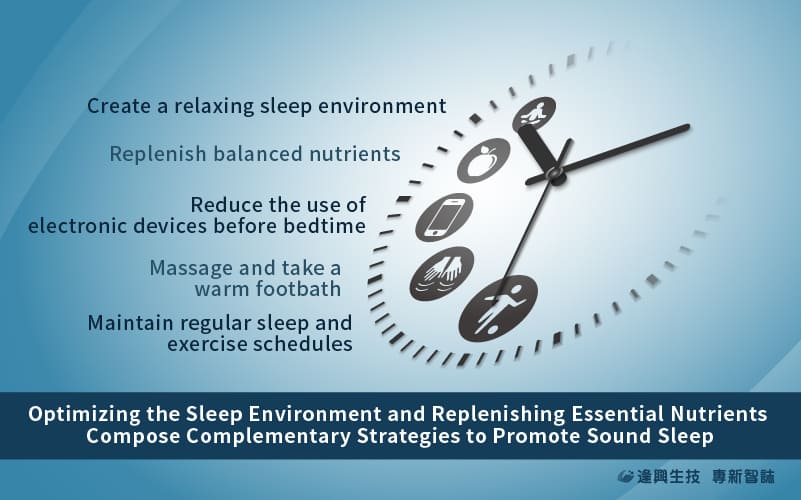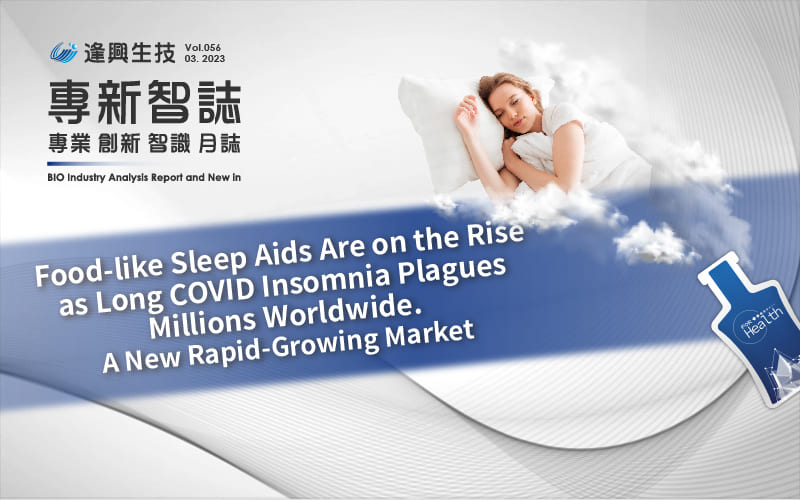Sleepless Nights Caused by Long COVID? The New Trend in the Sleep Aid Market in the Post-Pandemic Era
The impacts caused by insomnia due to COVID-19
The emergence of the COVID-19 virus in 2019 has had a significant impact on human health, with insomnia being one of its major aftereffects. This distressing condition, collectively known as “COVID-somnia,” is often linked to stress and lifestyle factors. The pandemic has disrupted daily routines and increased stress levels due to long-term isolation, concerns about income, and the health risks of loved ones, leading to a rise in cases of COVID-somnia among recovered patients who struggle with anxiety and difficulty falling asleep.
The number of individuals affected by insomnia surges amid the pandemic.
Insomnia has been a prevalent issue in modern society due to stressful lifestyles and the overuse of high-tech gadgets. Symptoms of sleep disorders such as difficulty falling asleep, frequent dreams, light sleep, and sleepless nights have been widely reported even before the pandemic. A recent “COVID-19 Impact on Sleep Survey” conducted by the Taiwan Society of Sleep Medicine found that the rate of insomnia among Taiwanese people increased significantly from 42.9% to 59.7% since the pandemic began[1]. In the United States, 70 million people already had sleep disorders pre-pandemic, with 33% to 50% being adults[2]. A post-pandemic study revealed that over half of the participants experienced symptoms of “COVID-somnia,” with a higher rate of 70% among confirmed cases in the 35-44 age group[3].
The insomnia remedy market is thriving rapidly.
The rise in the number of people experiencing insomnia has resulted in the expansion of industries catering to this issue. Recent data indicates that the global insomnia market was valued at $4.3 billion in 2020 and is projected to reach $6.3 billion by 2030[4], growing at a CAGR of 3.9% from 2021 to 2030. This has prompted various brands in the health product industry to recognize the potential of the sleep market as an untapped opportunity. As a result of factors such as physical and mental stress or post-COVID sleep disorders, achieving good quality sleep has become crucial for maintaining overall health and wellness.

[1]長新冠失眠問題,專家推薦睡好覺的 7 方法
https://heho.com.tw/archives/226332
[2]Insomnia, Cleveland Clinic
https://my.clevelandclinic.org/health/diseases/12119-insomnia
[3]New Year’s resolution: Don’t let COVID-somnia drag you down
https://aasm.org/new-years-resolution-dont-let-covid-somnia-drag-you-down/
[4]Insomnia Market Overview 2030
https://www.alliedmarketresearch.com/insomnia-market
Optimizing the Sleep Environment and Replenishing Essential Nutrients Compose Complementary Strategies to Promote Sound Sleep
The causes of COVID-somnia and self-help remedies
“Transient insomnia” refers to a type of sleep disturbance that can typically be resolved within a week. It is often triggered by stress or emotional changes, as well as disruptions to the circadian rhythm, such as jet lag, and can sometimes lead to adaptive or physiological insomnia. In contrast, COVID-somnia is a persistent form of insomnia that can last for more than a month. Western medicine attributes COVID-somnia to immune imbalances and damage to the central nervous system, whereas traditional Chinese medicine suggests that it may be linked to qi deficiency and anxiety. To improve sleep quality, various self-help remedies can be adopted, such as creating a relaxing sleep environment, maintaining regular sleep and exercise schedules, massaging acupoints, taking a warm footbath, and limiting the use of electronic devices before bedtime to minimize stimulation[5][6].
Sleep health supplements are a very effective insomnia remedy for busy modern people.
In order to improve sleep quality, it is important to not only create a sleep-conducive external environment but also to improve internal health by adopting a proper diet. While a balanced diet can be helpful in this regard, many people today lead busy lives and find it difficult to make dietary adjustments. As a result, replenishing sleep-promoting supplements can be a quick solution. Currently, many sleep aid products on the market not only focus on plant-based ingredients but also food-like dosage forms to make consumption more enjoyable and easier to integrate into daily dietary habits. These products can provide daily health benefits for different age groups.
Wel-Bloom Bio-tech has created a highly marketable sleep-promoting supplement that blends Chinese and Western medicine with the latest technology to cater to the needs of different insomniac groups. The product can help consumers suffering from COVID-somnia and other sleep disorders to calm their minds and face daily challenges with ease, effectively overcoming insomnia.

[5]How to Maintain Healthy Sleep Habits During the COVID-19 Pandemic
https://healthmatters.nyp.org/how-to-maintain-healthy-sleep-habits-during-the-covid-19-pandemic/
[6]New Year’s resolution: Don’t let COVID-somnia drag you down
https://aasm.org/new-years-resolution-dont-let-covid-somnia-drag-you-down/
